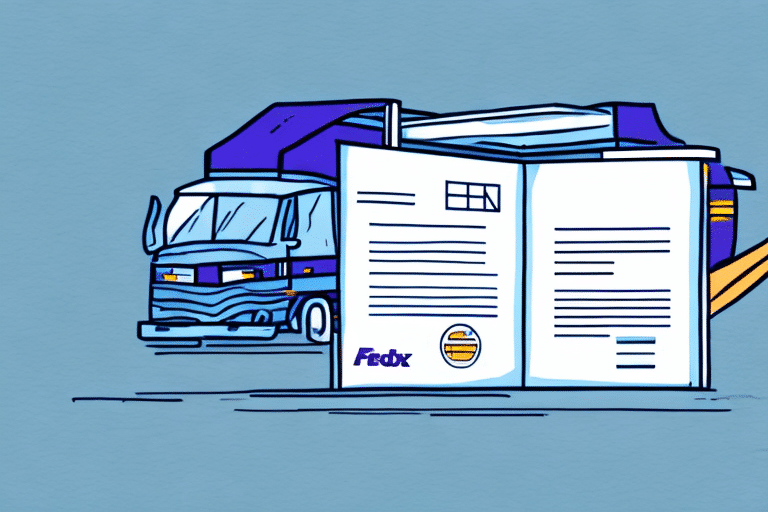Streamlining Trade Documents with FedEx Ship Manager Electronic Trade Documents
In today's fast-paced business environment, efficiency is paramount. Timely deliveries and shipments are crucial for business success, especially in international trade. One of the primary challenges in this sector is managing a myriad of paper documents, which can lead to delays, errors, and even lost or damaged shipments. FedEx Ship Manager Electronic Trade Documents address these challenges by simplifying and streamlining the documentation process, making it faster, more accurate, and more secure. This article explores the importance of electronic trade documents, their benefits, and how to effectively utilize them to enhance your business's efficiency and customer service.
Introduction to Electronic Trade Documents
Traditionally, managing trade documents involved manually preparing, printing, signing, and sending paper documents like commercial invoices, packing lists, bills of lading, and customs declarations through mail or courier services. This outdated process often resulted in delays, duplicate entries, errors, and missing documents, which could lead to shipment rejections and significant operational disruptions. The shift to electronic trade documents, enabled by advancements in technology, offers a modern solution to these issues.
Electronic trade documents not only save time and reduce errors but also provide enhanced security and accessibility. Businesses can easily monitor the status of their shipments, ensuring that all necessary documents are in order and that deliveries are timely. Additionally, electronic documents can be securely stored and accessed remotely, facilitating better management of trade documentation. Adopting electronic trade documents is a critical step toward modernizing and optimizing trade processes.
Challenges of Traditional Trade Document Management
The conventional method of handling trade documents is often slow and error-prone. Preparing, printing, signing, and mailing each document is time-consuming and increases the risk of mistakes. Physical documents are susceptible to being lost or damaged during transit, leading to significant delays and potential financial losses. Moreover, the storage and retrieval of paper documents are cumbersome, taking up valuable office space and making it difficult to access information quickly.
These challenges not only hinder operational efficiency but also impact customer satisfaction. Delayed or incorrect shipments can damage a company's reputation and lead to lost business opportunities. The need for a more efficient and reliable system is evident, and electronic trade documents present a viable solution to overcome these traditional hurdles.
Advantages of Electronic Trade Documents
Time and Cost Savings
Electronic trade documents significantly reduce the time required to prepare and transmit necessary paperwork. Documents can be created, signed, and sent within minutes, eliminating the delays associated with physical mailing. This efficiency translates to cost savings by reducing expenses related to printing, mailing, and storing paper documents.
Accuracy and Efficiency
Automated systems minimize the risk of human errors in data entry and document preparation. Electronic documents ensure consistency and accuracy, which are critical for compliance with international trade regulations. The ability to quickly update and reuse templates further enhances operational efficiency.
Security and Compliance
Electronic documents offer enhanced security features, such as encryption and digital signatures, safeguarding sensitive information from unauthorized access and fraud. Additionally, they facilitate compliance with various international trade regulations by ensuring that all necessary information is accurately and consistently presented.
According to a report by the U.S. Department of Commerce, businesses that adopt electronic trade documentation can reduce processing times by up to 50%, leading to faster customs clearance and reduced shipment delays.
Leveraging FedEx Ship Manager for Streamlined Trade Processes
FedEx Ship Manager Electronic Trade Documents provide a comprehensive platform for managing trade documentation efficiently. By integrating with your existing shipping processes, FedEx Ship Manager allows for the seamless creation, signing, and transmission of necessary documents, enhancing overall operational efficiency.
Accessing and Using Electronic Trade Documents
Businesses can access FedEx Ship Manager through the official FedEx website. Once registered, users can create and manage commercial invoices, packing lists, and other required trade documents online. The platform offers intuitive tools for editing, saving, and reusing documents, thereby minimizing the risk of errors and saving valuable time.
Step-by-Step Guide to Using FedEx Ship Manager
- Sign Up: Register for the electronic forms service on the FedEx website or through your account representative.
- Create Documents: Log in to the platform and select the type of document you need to create, such as a commercial invoice or packing list.
- Fill in Details: Enter the required information, including shipping destination, package contents, and applicable taxes and duties.
- Sign Electronically: Use digital signatures to authorize the documents securely.
- Transmit: Send the completed documents to the necessary recipients electronically.
- Track Status: Monitor the status of your documents to ensure they have been received and processed.
By following these steps, businesses can efficiently manage their trade documentation, ensuring accuracy and compliance while reducing administrative burdens.
Benefits of Going Paperless with Electronic Trade Documents
Transitioning to paperless electronic trade documents offers numerous benefits:
- Environmental Impact: Reduces paper usage and waste, contributing to environmental sustainability.
- Cost Reduction: Lowers expenses associated with printing, mailing, and storing physical documents.
- Accessibility: Allows for easy access and sharing of documents from anywhere with an internet connection.
- Space Efficiency: Eliminates the need for physical storage space, freeing up office resources.
Moreover, paperless systems enhance collaboration by enabling real-time sharing and updating of documents among partners and customers globally, accelerating the entire trade process from order placement to delivery.
Enhancing Security and Compliance
Security and compliance are critical in trade document management. Electronic trade documents offer robust security features, including encryption and access controls, ensuring that sensitive information is protected from unauthorized access and cyber threats. Digital signatures add an additional layer of authentication, verifying the identity of the document creators and recipients.
Compliance with international trade regulations is streamlined through automated data entry and consistent document formatting. Electronic systems can be configured to automatically include all required information, reducing the likelihood of non-compliance and the associated penalties. This ensures that shipments are processed smoothly without delays caused by regulatory issues.
Improving Customer Service with Electronic Document Processing
Efficient and accurate document processing directly enhances customer service. Faster processing times lead to quicker shipments, meeting customer expectations for timely deliveries. Reduced errors minimize shipment rejections and returns, fostering trust and reliability.
FedEx Ship Manager enables businesses to provide customers with real-time tracking and notifications, keeping them informed about the status of their shipments. This transparency improves customer satisfaction and loyalty, as clients appreciate the ability to monitor their orders throughout the shipping process.
Real-Life Success Stories
Numerous businesses have successfully streamlined their trade document processes using FedEx Ship Manager Electronic Trade Documents. For instance, XYZ Company reduced its document processing time from several days to just an hour by utilizing the online platform. This improvement not only enhanced customer service but also minimized errors and saved both time and money.
Another example is ABC Inc., which saw a 20% increase in shipment volume after transitioning to electronic trade documents. This growth was achieved without increasing the administrative workload, demonstrating the scalability and efficiency of electronic documentation systems.
These success stories highlight the tangible benefits of adopting electronic trade documents, showcasing how businesses can achieve significant operational improvements and drive growth.
Conclusion
Electronic trade documents are transforming the landscape of international trade by offering enhanced efficiency, accuracy, security, and compliance. FedEx Ship Manager Electronic Trade Documents provide a user-friendly platform that streamlines the creation, signing, and transmission of necessary trade documents, simplifying the entire process and boosting operational efficiency.
By embracing electronic trade documents, businesses can reduce costs, save time, improve customer satisfaction, and contribute to environmental sustainability. This modernization not only enhances the competitiveness of businesses in the global market but also supports their growth and success in an increasingly digital world.




















